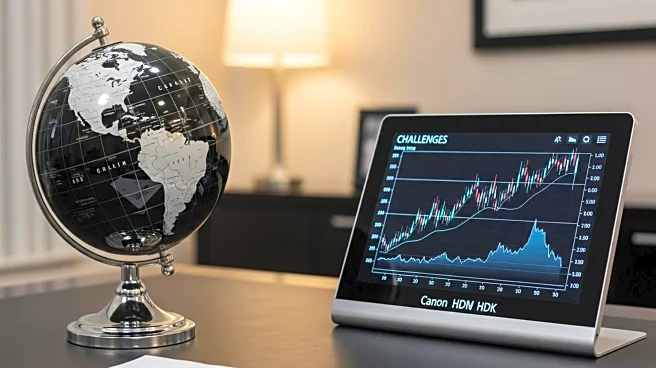What's Happening?
Cindy Rose has been appointed as the new CEO of WPP, a major advertising holding company, following a significant profit warning that led to a 16% drop in its share price. Rose, a former Microsoft executive, was unexpectedly chosen for the role, bringing her expertise in technology and AI to the company. Her appointment comes at a time when WPP is facing challenges, including a slowdown in new business and a need for restructuring. Rose has been a board member since 2019 and is known for her ability to implement tech solutions and drive transformation. Her dual British-American citizenship is seen as beneficial for WPP's operations in both the UK and the US.
Why It's Important?
Rose's appointment is crucial for WPP as it navigates a period of economic uncertainty and internal challenges. Her background in technology and AI is expected to help modernize WPP and improve its competitive edge in the advertising industry. With the US being WPP's largest market, her dual citizenship and willingness to split her time between London and New York are strategic advantages. Rose's leadership is anticipated to address inefficiencies within WPP's agency structure and improve its reputation among clients. Her focus on work-life balance and hybrid working policies may also boost employee morale, which has been affected by recent downsizing.
What's Next?
Rose will need to address WPP's structural and operational inefficiencies, particularly the duplication within its agency businesses. She is expected to lead the company into a new era underpinned by AI, convincing major clients of the value of WPP's work amidst increasing scrutiny of marketing budgets. Rose will also have to re-envision how agencies are compensated as AI takes over more processes. Her leadership will be tested in navigating macroeconomic factors and societal changes that impact the advertising industry.
Beyond the Headlines
Rose's appointment highlights the growing importance of technology and AI in the advertising industry. Her role as a female leader in a major holding company is significant, as she is only the second woman to lead such a company. The challenges she faces reflect broader industry trends, including the need for modernization and adaptation to technological advancements. Her ability to rally talent and navigate institutional red tape will be crucial in maintaining WPP's competitiveness.









